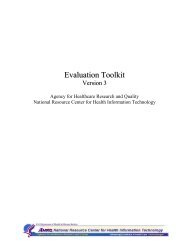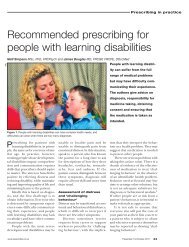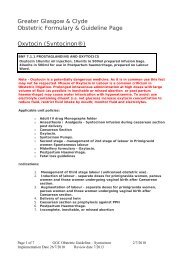The Fife Dementia Strategy: 2010 â 2020 - The Knowledge Network
The Fife Dementia Strategy: 2010 â 2020 - The Knowledge Network
The Fife Dementia Strategy: 2010 â 2020 - The Knowledge Network
You also want an ePaper? Increase the reach of your titles
YUMPU automatically turns print PDFs into web optimized ePapers that Google loves.
consistent with the principles laid out in legislation 76 such as the Adults with<br />
Incapacity (Scotland) Act 77 .<br />
As dementia progresses the person loses cognitive function which may make<br />
it difficult for them to communicate their views and wishes. This, in turn, often<br />
results in formal care staff turning to the carer for assistance in decision<br />
making which may increase the emotional burden on the carer. End of life<br />
planning must take place early by an individual trained in communication and<br />
counselling and while the person with dementia has sufficient mental capacity.<br />
This could include advance care statements or lasting power of attorneys. IN<br />
developing such plans service users should be offered support from advocacy<br />
organisations. Providers of care must be aware of such plans, ensure they are<br />
recorded and communicated to care staff and appropriately utilised.<br />
A palliative care approach should be used as appropriate alongside the active<br />
management of dementia using person centred care following the diagnosis.<br />
<strong>The</strong> Gold Standard Framework for palliative care of people with dementia and<br />
the Liverpool Care Pathway are important parts of the dementia specific<br />
Integrated Care Pathway and will be implemented as a part of the Local<br />
Action Plan for Living & Dying Well which is a comprehensive plan aimed at<br />
improving palliative and end of life care for people in <strong>Fife</strong> living in a variety of<br />
settings including their own homes, care homes and in hospital. It focuses on<br />
improving joint working to ensure that timely, holistic and effective care<br />
planning is available for those with palliative and end of life care needs and is<br />
carried out in a manner which is person centred and responsive to the needs<br />
of the person. <strong>The</strong> action plan aims to achieve this by improving staff<br />
education and training across all health and social care sectors, developing<br />
multi-disciplinary palliative care networks, and introducing standardised<br />
methods for assessing and delivering palliative and end of life care.<br />
In order to ensure people with dementia are cared for using a palliative<br />
approach, dementia will be included in the implementation of the Living &<br />
Dying Well local action plan, and recognised as a progressive and incurable<br />
condition which benefits from a palliative approach. Staff working in the<br />
community will work in partnership with care home staff to undertake training<br />
on palliative and end of life care.<br />
Palliative Care Champions Delivering Training across Care Services<br />
Palliative Care Champions in <strong>Fife</strong> Council care homes have been trained<br />
by the NHS <strong>Fife</strong> Macmillan Cancer and Palliative Care Educator within to<br />
facilitate small groups of care workers through a training programme with<br />
the assistance of experiential discussions and learning, and work<br />
booklets. <strong>The</strong> programme, the Macmillan Foundations in Palliative Care,<br />
has four focal areas: principles of palliative care; bereavement; pain and<br />
symptom management; and communication.<br />
76 Roger KS (2006). A literature review of palliative care, end of life and dementia. Palliative<br />
and Supportive Care. 4(3): 295-303.<br />
77 Adults with Incapacity (Scotland) Act 2000.<br />
84
















